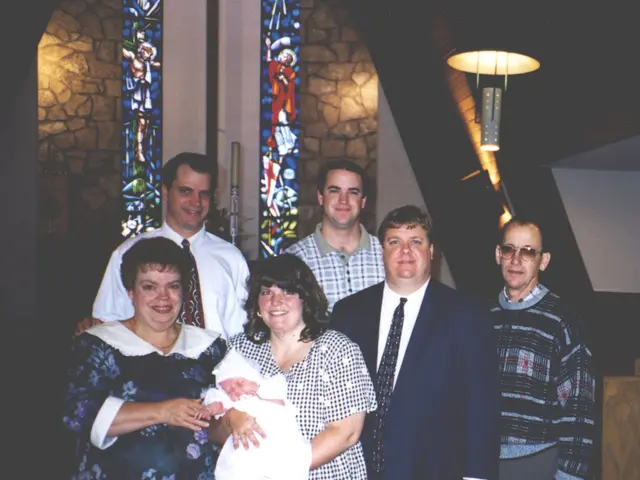Passionate Advocate and Women's Health Champion, Sybil Shainwald, Bids Farewell at the Age of 97
In 1962, Sybil Shainwald, a determined young woman, was met with rejection when she applied for a spot at Columbia University's law school. The dean, making a shortsighted decision, claimed her admission would hinder a young man with a potential 40-year career ahead. Little did they know, Shainwald was already working on a doctorate in history at the university and moving forward with a joint PhD/JD program.
Years later, after finally earning her law degree in her late forties, Shainwald proved her deans' doubts were unfounded. She showcased a career longevity and impact that surpassed many of the men admitted in her stead. Shainwald snagged a string of landmark victories over pharmaceutical companies on behalf of women who were irreparably harmed by ill-tested drugs and devices.
At 90, Shainwald quipped, "Luckily, I've been practising for more than 40 years." Anthony Crowell, dean of New York Law School, which welcomed her with open arms after Columbia's rejection, shared that she remained an active, sought-after lawyer even in her final weeks.
Sybil Schwartz, born in Brooklyn in 1928, demonstrated an early inclination to carve her own path. At 16, she left home to attend William & Mary College in Virginia. Her choice of an institution in a state culturally dissimilar to her home borough signified her willingness to defy conventions and forge her own path. This self-assertiveness remained a constant as she combined marriage, raising four children, teaching, and working in the consumer movement with her career aspirations.
At 48, Shainwald graduated law school, one of just seven women in a 169-strong class. Finding a niche proved difficult, and she was forced to join a firm unpaid. "I asked if I could take space at a law firm that had only hired men. They said 'yes, we don't usually do that, but we'll do it for you'. And, of course, they called me sweetheart," she recalled.
Her grit to challenge this power imbalance found expression in her dedication to defending women harmed by the pharmaceutical industry. Shainwald believed the industry often acted without regard for safety, especially concerning contraceptive implants and devices.
One of her most significant battles concerned the Dalkon Shield, a cheap intrauterine device claimed to prevent pregnancy in "forgetful" women. Shainwald revealed that one in every eight baboons died, and 30% suffered uterine perforation in a two-year safety study - results that were never disclosed publicly.
Her most triumphant victories centered around DES, a drug given to pregnant women to prevent miscarriage. It later turned out to be a carcinogen. Shainwald won a groundbreaking case against Eli Lilly on behalf of Joyce Bichler, a 17-year-old who developed clear cell adenocarcinoma of the vagina and had to undergo radical surgery as a result of her mother taking the drug.
Her colleagues were hesitant to take the case to trial, she noted. However, it proved pivotal in the women's health movement, highlighting the callous nature of the pharmaceutical industry and serving as the most egregious example of their treatment of women.
Shainwald's advocacy for DES victims led to notable achievements, including overturning a New York state law that prevented under-21s from filing cases and expanding the statute of limitations for women's health cases in New York.
Shanna Swan, a reproductive epidemiologist and friend of Shainwald, described her as an "ardent, passionate feminist." Swan also shared that Shainwald exclusively collected art by women and of women. Despite her bitter battles with the pharmaceutical industry over the years, Swan said Shainwald never felt daunted or afraid - she was "really tough" and knew she was right.
Throughout her life, Shainwald fought tirelessly against the pharmaceutical industry, advocating for women's rights and seeking justice for those affected by harmful products. Her unwavering dedication and commitment to justice left an indelible mark on the legal community and continues to inspire future generations of lawyers to challenge corporate wrongdoing.
- Sybil Shainwald, having already earned a doctorate in history and pursuing a joint PhD/JD program, found her calling in the health-and-wellness sector, specifically focusing on women's health, as she spearheaded several legal battles against pharmaceutical companies.
- Shainwald's relentless pursuit for justice in the field of science, particularly concerning women's health and safety, led to groundbreaking victories against pharmaceutical giants, such as Eli Lilly, and significant legislative changes in New York state.







